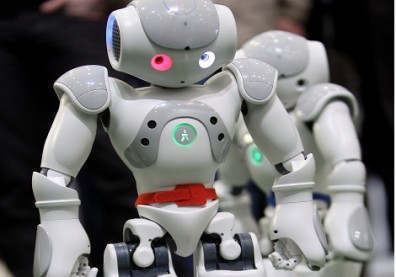This generation is reaping the fruits of the "age of acceleration," wherein technological advances and the globalization of enterprises are recreating society and its entire industries. Given this fact, consumers are driven to adapt to these changes and at the same, gear up for the forthcoming innovations developed for the whole of humanity, one of which is Artificial Intelligence.
The Verge reports that Microsoft researchers predict that the search bar will be irrelevant by 2027, along with other predictions, which include machine learning, natural language processing, virtual reality and agricultural software. These were a result of a poll conducted in 17 women working within Microsoft when asked what technological advances they expect to see in 2017, and a decade later in 2027. You can view other predictions on the Microsoft Blog, although a safe summarization of it all is the fact that everything relates to Artificial Intelligence.
How Does Artificial Intelligence Affect Web Searches?
Artificial Intelligence in search engines involves deep neural networks, which are networks of software and hardware likened to the web of neurons in the human brain. Neural nets can learn a significant amount of tasks by analyzing huge amounts of data, and responding to Web queries is one of them. It is possible for neural networks to outperform humans - they can do it better, they can do it faster, and they can do it in a scale that no human could ever accomplish.
This approach is called deep learning, and is reinventing everything on the Internet. What search engines do, such as Google, is generate responses to search queries. Google does this by using a deep learning system called RankBrain in order for the search engine to spawn answers. This Artificial Intelligence application will soon be phased out, at least according to Microsoft researchers.
How Will Artificial Intelligence Take Over Search Bars?
In 2027, the search box will disappear, according to Microsoft's Susan Dumais. It will be replaced by search that's more contextually sensitive. Dumais also noted of the voice-controlled searches we have now in mobile devices. In the future, she said we will eventually be able to look things up without mentioning keywords in search bars by way of sound, images, or video. The idea is feed neural nets with information that need not comply with a search engine's old algorithms; again, a nod to Artificial Intelligence.
Machine learning in the world of Artificial Intelligence could be a frightening idea to some, but it is undeniably changing the landscape. "By building learning systems, we don't have to write these rules anymore," said John Giannandrea, Google's AI boss. "Increasingly, we're discovering that if we can learn things rather than writing code, we can scale these things much better."










